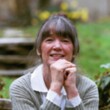A Widow's Story
(Libby/OverDrive eBook, Kindle)
Available Platforms
Description
Unlike anything Joyce Carol Oates has written before, A Widow&;s Story is the universally acclaimed author&;s poignant, intimate memoir about the unexpected death of Raymond Smith, her husband of forty-six years, and its wrenching, surprising aftermath. A recent recipient of National Book Critics Circle Ivan Sandrof Lifetime Achievement Award, Oates, whose novels (Blonde, The Gravedigger&;s Daughter, Little Bird of Heaven, etc.) rank among the very finest in contemporary American fiction, offers an achingly personal story of love and loss. A Widow&;s Story is a literary memoir on a par with The Year of Magical Thinking by Joan Didion and Calvin Trillin&;s About Alice.
More Details
Excerpt
Similar Titles From NoveList
Similar Authors From NoveList
Published Reviews
Booklist Review
*Starred Review* Brutal violence and catastrophic loss are often the subjects of Oates' powerful novels and stories. But as she reveals in this galvanizing memoir, her creative inferno was sequestered from her joyful life with her husband, Raymond Smith. A revered editor and publisher who did not read her fiction, Smith kept their household humming during their 48-year marriage. After his shocking death from a secondary infection while hospitalized with pneumonia, Oates found herself in the grip of a relentless waking nightmare. She recounts this horrific siege of grief with her signature perception, specificity, and intensity, from epic insomnia and terrifying hallucinations to the torment of death-duties, painful recognitions of confidences unshared and secrets harbored, and a chilling evaporation of meaning. But Oates also rallies to offer droll advice on how to be a good widow and describes her struggles with mountains of lavish sympathy gifts and the attendant trash with a widow's slapstick-comedy. In a stunning extension of the compelling disclosures found in The Journal of Joyce Carol Oates, 1973-1982 (2007), protean and unflinching Oates has created an illuminating portrait of a marriage, a searing confrontation with death, an extraordinarily forthright chronicle of mourning, and a profound pilgrimage from chaos to coherence. HIGH-DEMAND BACKSTORY: The incomparable, best-selling Oates fascinates readers, and her memoir of sudden widowhood will have an impact similar to Joan Didion's The Year of Magical Thinking (2005).--Seaman, Donna Copyright 2010 Booklist
Publisher's Weekly Review
Early one morning in February 2008, Oates drove her husband, Raymond Smith, to the Princeton Medical Center where he was admitted with pneumonia. There, he developed a virulent opportunistic infection and died just one week later. Suddenly and unexpectedly alone, Oates staggered through her days and nights trying desperately just to survive Smith's death and the terrifying loneliness that his death brought. In her typically probing fashion, Oates navigates her way through the choppy waters of widowhood, at first refusing to accept her new identity as a widow. She wonders if there is a perspective from which the widow's grief is sheer vanity, this pretense that one's loss is so very special that there has never been a loss quite like it. In the end, Oates finds meaning, much like many of Tolstoy's characters, in the small acts that make up and sustain ordinary life. When she finds an earring she thought she'd lost in a garbage can that raccoons have overturned, she reflects, "If I have lost the meaning of my life, and the love of my life, I might still find small treasured things amid the spilled and pilfered trash." At times overly self-conscious, Oates nevertheless shines a bright light in every corner in her soul-searing memoir of widowhood. (Feb.) (c) Copyright PWxyz, LLC. All rights reserved.
Library Journal Review
In 2008, after her husband is diagnosed with pneumonia and dies unexpectedly of a hospital-acquired infection, National Book Award winner Oates (Them) struggles to move forward and redefine her life without him. Oates's grief is palpable as she describes battling depression, insomnia, and impolite questions, but her strongest passages comprise her recollections of the time she spent with her late husband. Whatever sort of dark humor Oates attempts to achieve with her advice on how to be a "good widow," however, is not entirely successfully captured in actress/narrator Ellen Parker's treatment of the text. Still, fans of Joan Didion's The Year of Magical Thinking and/or Marilynne Robinson's Gilead are sure to savor. ["A worthy purchase that will be appreciated by readers of memoir generally and older readers especially," read the review of the Ecco hc, LJ 10/15/10.-Ed.]-Johannah Genett, Hennepin Cty. Lib., MN (c) Copyright 2011. Library Journals LLC, a wholly owned subsidiary of Media Source, Inc. No redistribution permitted.
Booklist Reviews
*Starred Review* Brutal violence and catastrophic loss are often the subjects of Oates' powerful novels and stories. But as she reveals in this galvanizing memoir, her creative inferno was sequestered from her joyful life with her husband, Raymond Smith. A revered editor and publisher who did not read her fiction, Smith kept their household humming during their 48-year marriage. After his shocking death from a "secondary infection" while hospitalized with pneumonia, Oates found herself in the grip of a relentless waking nightmare. She recounts this horrific "siege" of grief with her signature perception, specificity, and intensity, from epic insomnia and terrifying hallucinations to the torment of "death-duties," painful recognitions of confidences unshared and secrets harbored, and a chilling evaporation of meaning. But Oates also rallies to offer droll advice on how to be a "good widow" and describes her struggles with mountains of lavish "sympathy gifts" and the attendant trash with a "widow's slapstick-comedy." In a stunning extension of the compelling disclosures found in The Journal of Joyce Carol Oates, 1973–1982 (2007), protean and unflinching Oates has created an illuminating portrait of a marriage, a searing confrontation with death, an extraordinarily forthright chronicle of mourning, and a profound "pilgrimage" from chaos to coherence. HIGH-DEMAND BACKSTORY: The incomparable, best-selling Oates fascinates readers, and her memoir of sudden widowhood will have an impact similar to Joan Didion's The Year of Magical Thinking (2005). Copyright 2010 Booklist Reviews.
Library Journal Reviews
Like Joan Didion, another well-known author who wrote about her husband's death (The Year of Magical Thinking), Oates, referring to herself here as Joyce Smith, shares with us the sudden and unexpected demise of her husband, Raymond Smith, editor of the Ontario Review, which he founded with Oates in 1974. The two were married for 48 years. Oates recounts her husband's fatal bout of pneumonia and the arduous aftermath: dealing with death duties, the terror of aloneness, the sleeplessness, the thoughts of suicide. She gets help from friends and from medication, but it takes her months before she can face and accept being on her own. VERDICT This book is beautifully written and very affecting. Oates is honest and forthcoming about her fears, dazed state, and outer mien vs. inner terror. Readers will become emotionally involved then feel relief when Oates is finally able to move on. A worthy purchase that will be appreciated by readers of memoir generally and older readers especially.—Gina Kaiser, Univ. of the Sciences Lib., Philadelphia
[Page 76]. (c) Copyright 2010. Library Journals LLC, a wholly owned subsidiary of Media Source, Inc. No redistribution permitted.Publishers Weekly Reviews
Early one morning in February 2008, Oates drove her husband, Raymond Smith, to the Princeton Medical Center where he was admitted with pneumonia. There, he developed a virulent opportunistic infection and died just one week later. Suddenly and unexpectedly alone, Oates staggered through her days and nights trying desperately just to survive Smith's death and the terrifying loneliness that his death brought. In her typically probing fashion, Oates navigates her way through the choppy waters of widowhood, at first refusing to accept her new identity as a widow. She wonders if there is a perspective from which the widow's grief is sheer vanity, this pretense that one's loss is so very special that there has never been a loss quite like it. In the end, Oates finds meaning, much like many of Tolstoy's characters, in the small acts that make up and sustain ordinary life. When she finds an earring she thought she'd lost in a garbage can that raccoons have overturned, she reflects, "If I have lost the meaning of my life, and the love of my life, I might still find small treasured things amid the spilled and pilfered trash." At times overly self-conscious, Oates nevertheless shines a bright light in every corner in her soul-searing memoir of widowhood. (Feb.)
[Page ]. Copyright 2010 PWxyz LLCReviews from GoodReads
Citations
Oates, J. C. (2011). A Widow's Story . HarperCollins.
Chicago / Turabian - Author Date Citation, 17th Edition (style guide)Oates, Joyce Carol. 2011. A Widow's Story. HarperCollins.
Chicago / Turabian - Humanities (Notes and Bibliography) Citation, 17th Edition (style guide)Oates, Joyce Carol. A Widow's Story HarperCollins, 2011.
Harvard Citation (style guide)Oates, J. C. (2011). A widow's story. HarperCollins.
MLA Citation, 9th Edition (style guide)Oates, Joyce Carol. A Widow's Story HarperCollins, 2011.
Copy Details
| Collection | Owned | Available | Number of Holds |
|---|---|---|---|
| Libby | 1 | 1 | 0 |































